It comes to an end – The Tour Down Under (at least for me, the race finishes later this Sunday – today in Australia). I stayed for a week in Adelaide, overlapping all of the Women’s Tour Down Under, and a good chunk of the Men’s stages. Plus a few other events tied to the umbrella of the Tour Down Under. Without question – it’s an awesome week in be in not just Adelaide, but Australia. I’m certainly looking forward to making the trek back down again.
Still, I figured it’d be fun to dive into a handful of the couple thousand photos I took over the past week, covering some of the major events and stages – as well as some general logistical things. This being the first time I was at the TDU, you see things through a different lens than a repeat customer. Plus, I learned a few things I’d change for next year as well.
Oh – before we start though – don’t forget to check out both my pro women’s and pro men’s gear posts from this week – covering all the bikes of the pro teams. Plus, I’ve got another post on how the race tracker system works here.
The People’s Choice Criterium:
Last Sunday unofficially yet officially kicked off the men’s side of the race. The women officially started last Saturday with Stage 1 (in a typical point to point stage). However the men didn’t start till Sunday, and when I say ‘unofficially yet officially’, it’s a bit confusing. See, this event is known as the People’s Choice, and is held around a large park area near downtown. But it’s technically not part of the 6 stage Tour Down Under. Yet, all the same teams and pros race in it (and nobody else does), but it does not impact the race standings. It’s kinda like an exhibition game.
However, for the women – it does impact things. That’s because for them it’s their Stage 2 and fully part of the Tour Down Under. Same course, just slightly different durations.
Now…before we get to the pros, there were lots of events going on that day on the official course. I got there midafternoon in time to see a charity ride benefiting cancer-focused organizations doing some laps of the route:
And after that was the Undies Run, this one for bowel cancer research. They’d do one loop of the same 2.3KM route.
I would like to suggest to my Australian friends that you need to HTFU a bit on the whole ‘undies’ thing. A tank-top and shorts does not qualify as an undies run. That kinda misses the ‘undies’ part. I give you this example as attire guidance for next year.
In any case…
Just after the undies run finished, it was time for the women to hit up the course. They’d be riding for about 45 minutes (compared to about 55-60 minutes for the men).
What’s cool about these races though is that they’ve got the full UCI gamut of officials and such with them.
The best spots to situate yourself in the course tends to be coming out of the turns (where riders often try to break away), or down the one hill, which shows the incredible speed of the 101 person peloton.
After the women finished, the men weren’t far behind. The whole event is designed such that you can hang out and just watch thing after thing. Be it an undies run or a cycling race. They’ve even got food trucks out there.
In the case of both the men and the women, the first 100m or so isn’t super exciting. But by 150-250m into the race, there’s already some movement towards the front.
And then a lap later, the folks definitely hauling.
By this point you see breakaways forming. Though the scene of the peloton behind them is menacing.
They’ve got massive TV’s setup at most of the turns, enabling you to watch the action across the entire route, from pretty much any point on the course.
And there’s tons of folks out there enjoying said action.
Given these races occur in the evening, it creates a bit of a twilight setting – especially in the last few laps.
Of course, it’s all about whether the peloton can catch the breakaway rider(s). In this case, the answer was definitely yes.
For a course like this it’s relatively easy for the peloton to catch most breakaways, given the reasonably straight route that allows significant speed to be built up. Versus a more technical course might have held them off.
Of course – all that’s about race tactics. And there’s plenty of explanation on how crits work, all of which is probably best left to this post.
The Enormity of a Stage Start:
Part of the draw of seeing a WorldTour event is the spectacle of it. It’s looking at not just the racers, but the infrastructure that supports them day in and day out. From team support to UCI officials to race organizers. It’s all there. In the case of the Tour Down Under, the pointy tip of that is the parade/caravan. This leads the race by about 30 minutes, and is an 8-car version of the otherwise massive Tour de France caravan (which takes upwards of 30 minutes to pass).
Still, nothing beats a kangaroo cyclist atop a car:
Meanwhile, at the starting line you’ve got a few riders holding baby kangaroos. Because…Australia.
But it’s ultimately these types of scenes that make the local (and international) newsreels. It’s not something you’re going to see in the Giro. And that in and of itself is a draw, as seen by the gaggle of media/TV folk around the two UniSA riders:
Off to the side are riders checking in. This sign-in board is true of both the men and women (note I didn’t see any baby kangaroo’s at the start of the women’s stage 1). Each rider must sign-in for that day, confirming their presence. Up until the start of stage 1 there can be last minute team swaps, as was the case for Team Sky. They announced that about 20 minutes ahead of the start of the race.
Behind the starting line are the team cars. This is where things differ from the Grand Tours and Classics. In this case, you can see the vehicles to the right are all packed with bikes. These cars will follow the race and provide support. Whereas the vehicles to the left are team support more for pre/post race activities. There are no massive RV’s here like you’d see at the Tour de France or even one-day races throughout Europe.
Though interestingly, the women appeared to have to procure their own team vans (or not at all), whereas the men’s teams all got identical vans from the race with clearly functional air conditioning.
You can see the riders below awaiting the start, while other riders snake their way to the start line to sign the board.
One of the draws I heard many times prior to arrival of the TDU is how easy it is for fans to access the riders. And I’m not quite sure that’s as valid a claim as folks might think it is.
Yes, you can get close at the start. But that’s generally true of the Tour de France and other major events in Europe too. Also, at the TDU all of the bike maintenance/prep/etc occurs in a sealed off area inside a convention hall (compared to open-air near the riders in Europe). Don’t get me wrong – it’s not bad at all, but I think it’s probably a wash between TDU and other races I’ve seen.
It’s during this time I’m searching through all the team bikes for something new, or just to get better/different shots of something if I didn’t like my shots from the previous stage.
So on this stage I was looking to see how many riders would be riding Shimano’s prototype power meter for example (one active, one spare bike).
And I was also looking to see how many Team Sky riders would be on Stage’s Dual Left/Right setup (all of them, which I think might be a first for a race).
As I made my way back to the starting line I snapped a few more random pics of different teams.
In the case of most stage starts (non-crit), the first few kilometers are more of a warm-up, and considered a neutral zone. So it tends to be pretty relaxed then. Still, tons of fans out and about in these areas. Everyone enjoys the accessibility of the race, with all of the stages starting in and/or around Adelaide (meaning, the teams don’t travel each night – they stay put).
And like other major cycling events that have developed a history, the shops around each starting/finishing area get into it as well.
Oh – speaking of fans. I’ve gotta say a huge thanks to all of the DCR readers out there who stopped to say hi! It was astounding how many folks in Australia read the blog. Plus, the many others that commented with suggestions for my Australia trip. It’s been amazing! While I’ve taken many selfies with readers over the past 10 days, I somehow only managed to get one photo myself. So here’s two readers that stopped to say hi!
Thanks guys!
The Women’s Finale Evening:
On the hottest day of the week, at arguably the hottest point of that day, the women set out to complete their four-stage race. This was held nearby where the crit course from two nights prior took place, in close proximity to downtown Adelaide.
But before that occurred, there were again a handful of more ‘relaxed’ races to compete. One of which was this Brompton race. Yes, the cyclists (both men and women) were not only racing Brompton bikes (those are folding bikes), but also doing so in workplace attire (mostly suit coats).
Mind you, my watch read the temperature at 104°F/40°C during the middle of this race. There was no shade anywhere on the course.
How awesome is that?
After those folks finished I met up with the founder behind AirHub, which is able to provide wattage based resistance to a front wheel. I got a demo ride in, and a bit more detail on how it all works. But more on that in a few days in a separate post. Cool stuff.
From there I then spent a bit more time getting some more shots of the ladies’ bikes that I hadn’t gotten previously.
Oh – and remember when I said earlier than the ladies lacked the fancy race-provided vans of the men. Yup – here’s what they got. Again, it’s 104°F outside at this point.
Before I knew it though, it was time for the women to start. They lined up on the sweltering track.
And the various jersey leaders got the traditional pre-start photo taken. This is true of virtually every stage race, no matter how big or small.
And shortly after that – they were off.
The race would last 1hr and 10 minutes, with multiple sprint primes spread throughout it. The racing was fantastic – despite the heat.
The track had stands, which sheltered the fans from some of the sun (until it set low enough to bring them back into the sun). But even then, you can see plenty of fans out in the heat along the track. After all – that was the best place to experience the speed and tactics of the race.
Of course – it’s the sprint laps that are the craziest to watch, as riders vie for primes or points.
Watching the women’s racing is just as exciting as the men’s. Sure, they generally aren’t moving as fast in terms of pure number stats, but it frankly doesn’t matter – they’re still moving incredibly fast. And the tactics and sprints are just as thrilling to see first hand. Anytime you get a chance to go out and watch an event like this – definitely take advantage of it!
The Tour Village:
Last but not least (ok, slightly least) – we’ve got the Tour Village. This is in the center of town and is where all of the sponsor booths are. It’s also where teams have prep/maintenance areas.
The cool part is that fans can check out virtually all of the major bike companies that have teams in the Tour Down Under. Plus, anyone can stop by and rent a demo bike for a day (legit awesome bikes). For free.
There’s of course tons of gear for sale as well. Both TDU branded stuff – and then just random team stuff.
And as I mentioned above – plenty of sponsor booths to be seen here across a wide swath of cycling companies.
And finally – you’ve got the team areas. This includes everything from where riders meet for the day ahead (the official hotel is across the street), to gearing up nutrition bottles, to where mechanics clean the bikes.
Here they are cleaning off the bikes after a stage.
Phew.
With that – I’ve got no more pictures. Or at least, cleaned up pictures. Oh – wait – I’ve got something else I’ve just added in. The Tour Down Under Media Bag Unbagging. No, not an unboxing…but…an unbagging. I thought it might be a fun slice of behind the scenes:

Hope you enjoyed the look at the spectator side of the Tour Down Under. As I noted above, I had a blast at the race, and am looking forward to making the trek again.
From a timing standpoint and lessons learned for next year, it worked out well arriving on Wednesday before the race (since we travelled 24 hours on planes to get there). That gave a few days to get onto roughly the right time zone, before the ladies began on Saturday. I might stay another day or three longer in Adelaide next year – bringing it to about 10 days versus 7. I’d note that logistically you need a car if you want to see the race in more than one spot on a given day, but even then – it’s much harder to play the ‘skip-ahead’ game that you can do in many European races (more details on that here). There simply aren’t the right highways here to pull that off from a stage design standpoint.
On the flipside, it’s increda-easy to see almost every stage start via bicycle riding from the downtown area. We stayed out at the beach (Glenelg), which was a nice retreat from downtown, though it meant a bit more back and forth. Still, we enjoyed the locale and of course the beach. Till next year!
And now…on to see the rest of Australia for a few more weeks! More to come!
FOUND THIS POST USEFUL? SUPPORT THE SITE!
Hopefully, you found this post useful. The website is really a labor of love, so please consider becoming a DC RAINMAKER Supporter. This gets you an ad-free experience, and access to our (mostly) bi-monthly behind-the-scenes video series of “Shed Talkin’”.
Support DCRainMaker - Shop on Amazon
Otherwise, perhaps consider using the below link if shopping on Amazon. As an Amazon Associate, I earn from qualifying purchases. It doesn’t cost you anything extra, but your purchases help support this website a lot. It could simply be buying toilet paper, or this pizza oven we use and love.

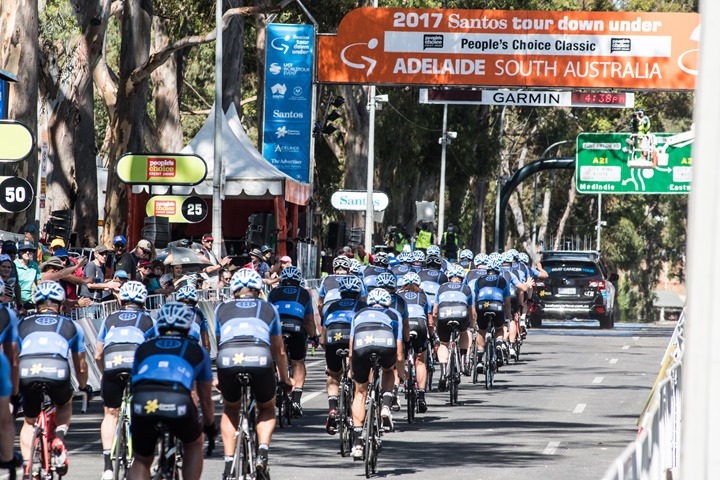
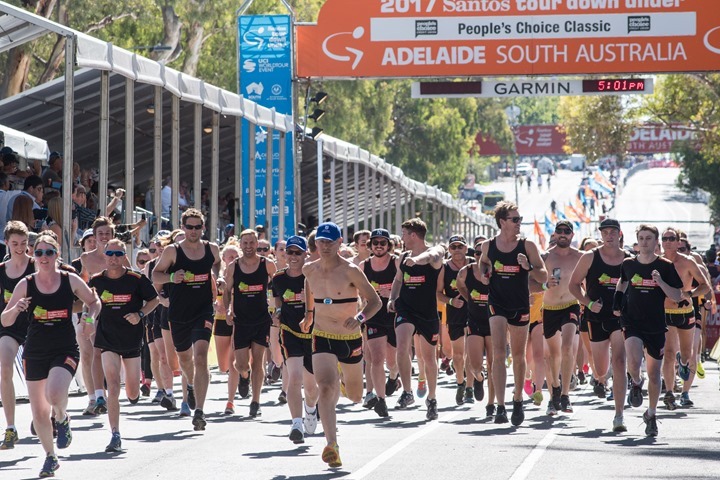
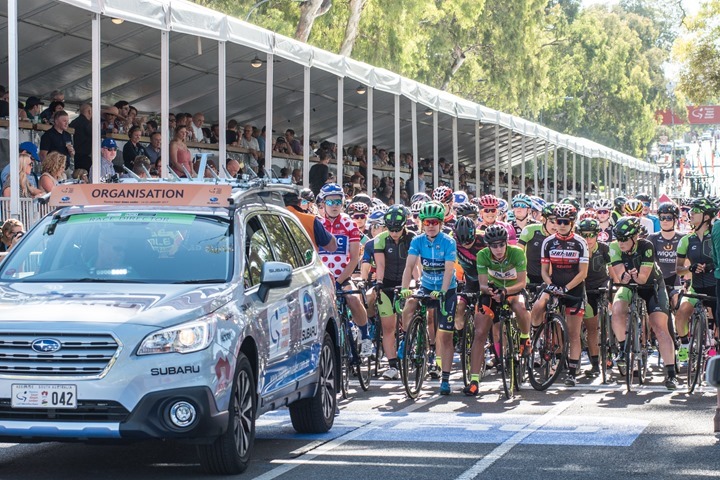
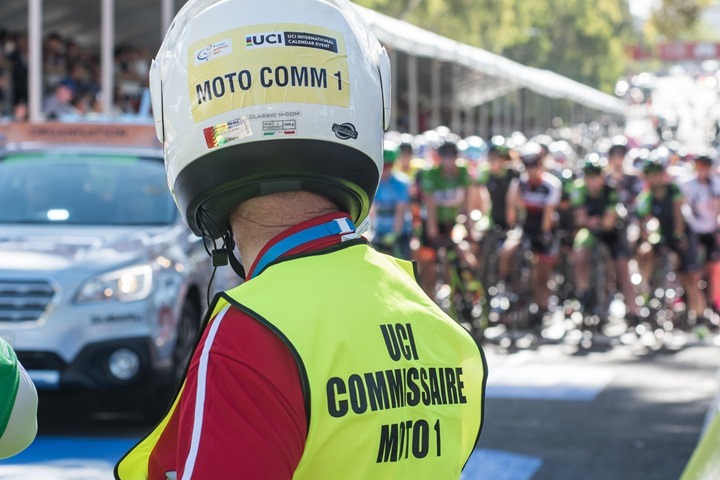
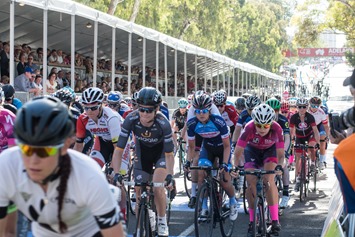
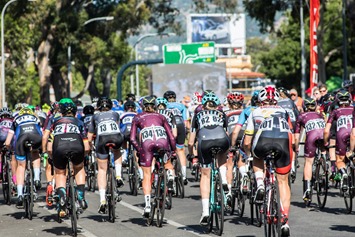
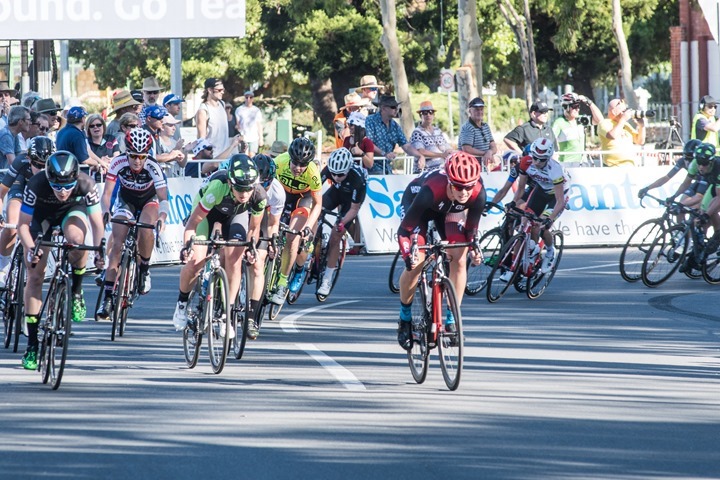
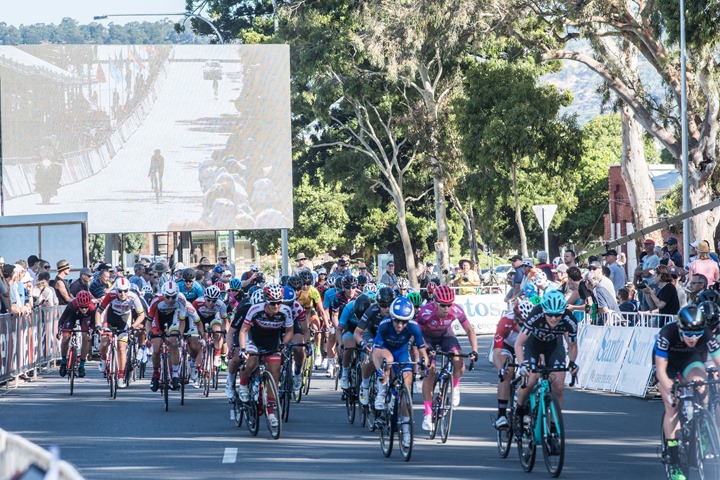
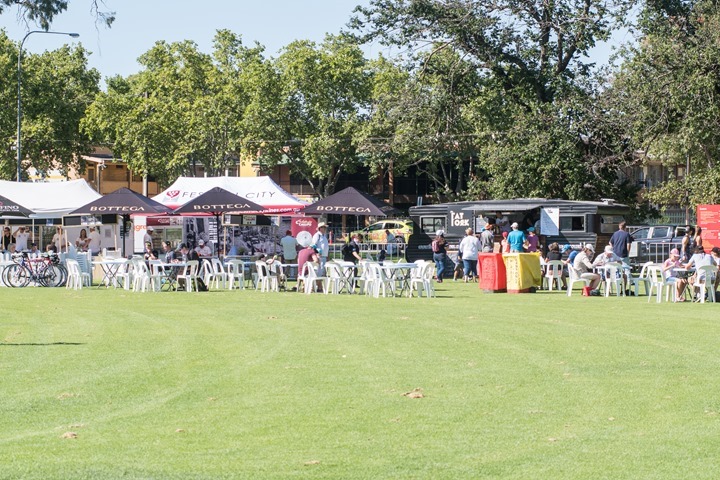
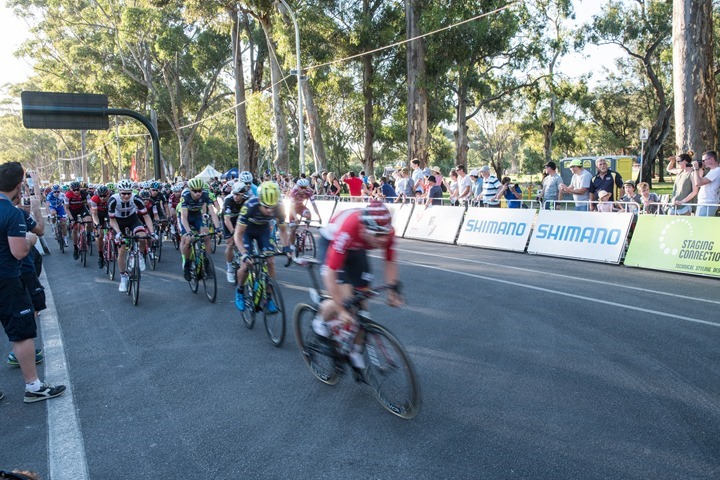
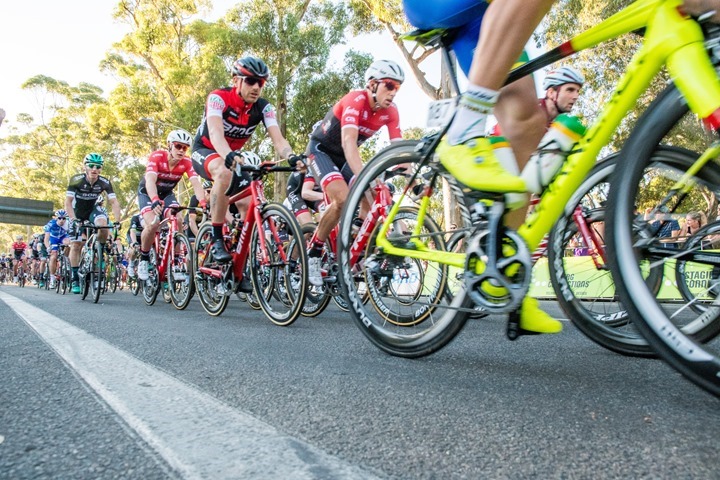
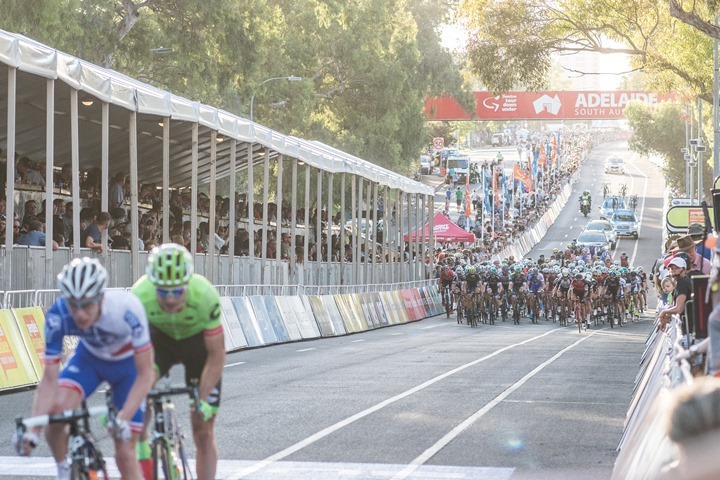
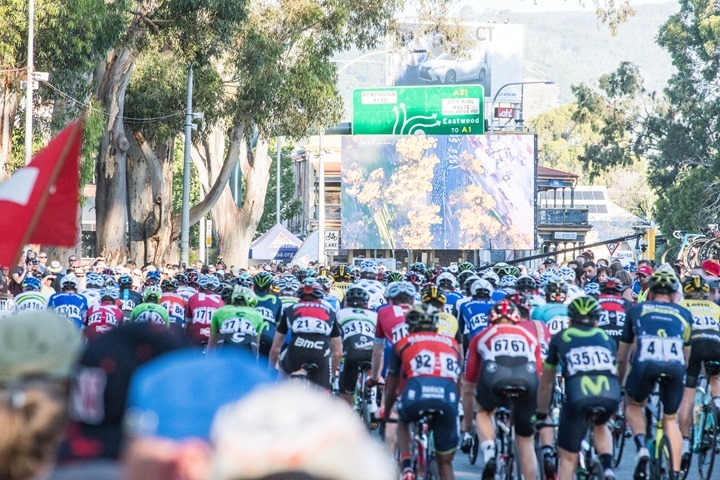
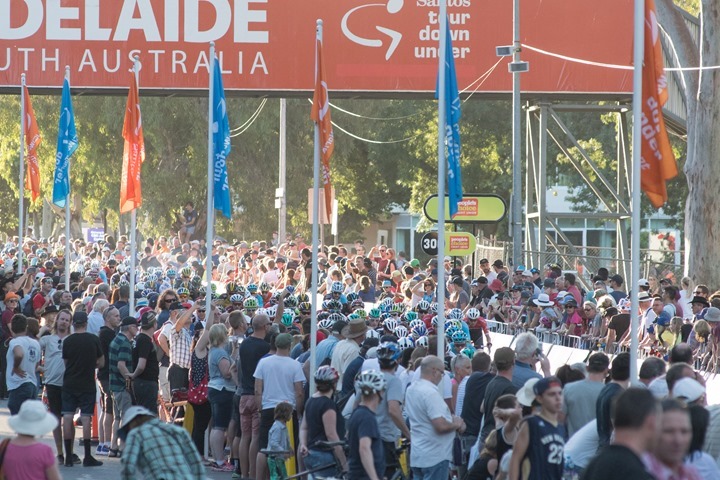
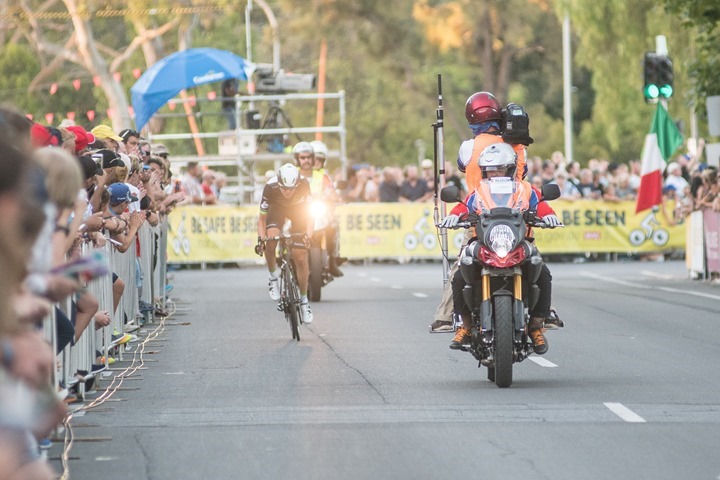
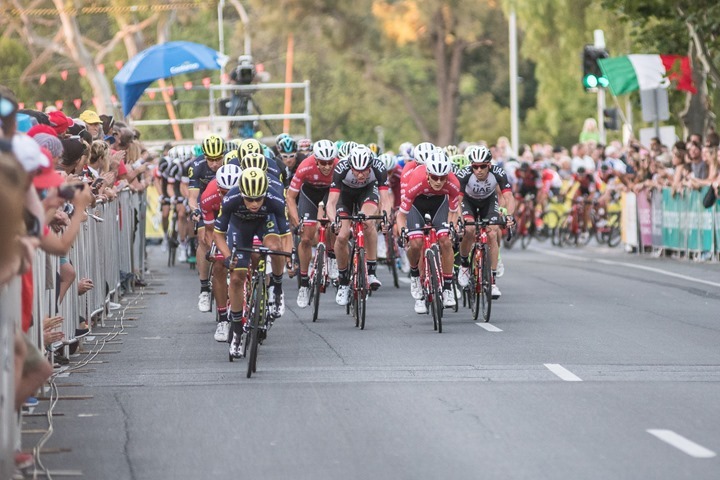
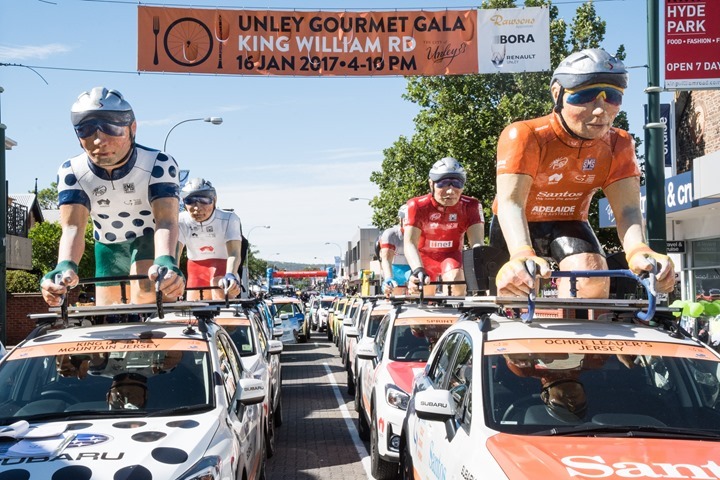
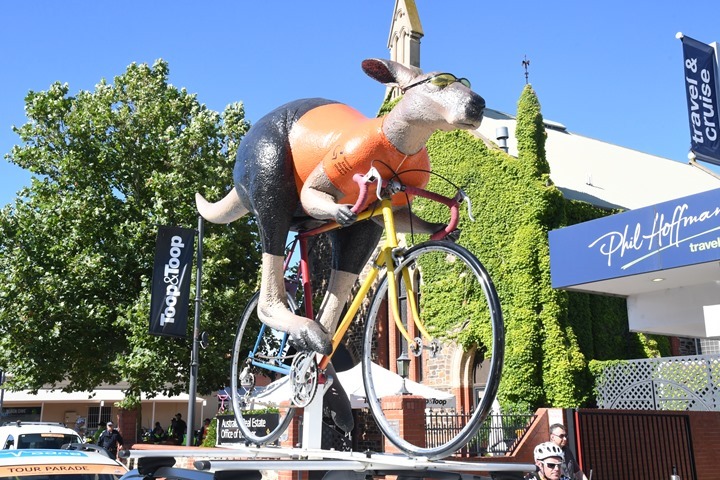
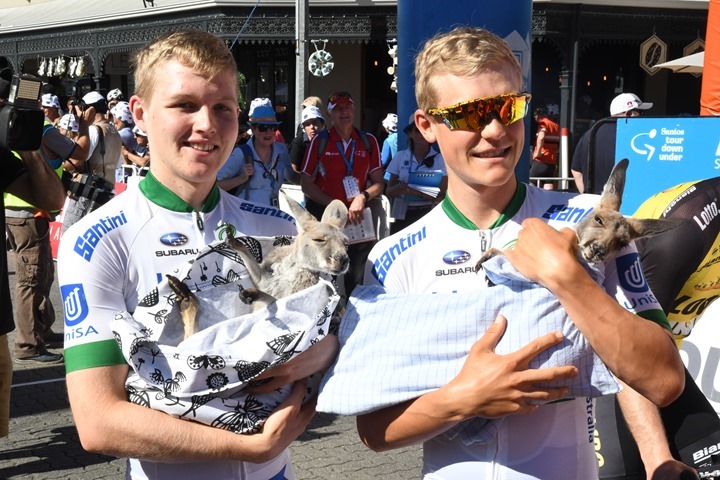
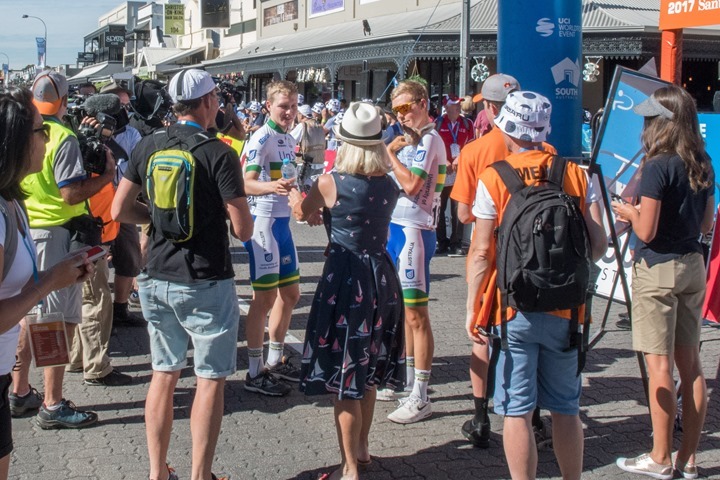
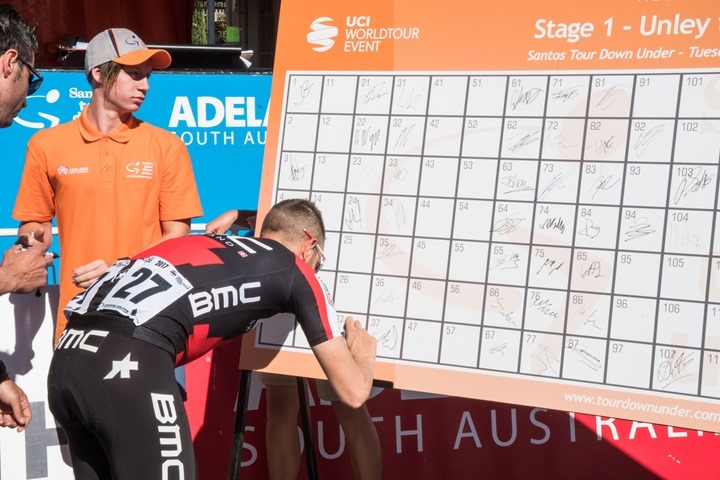
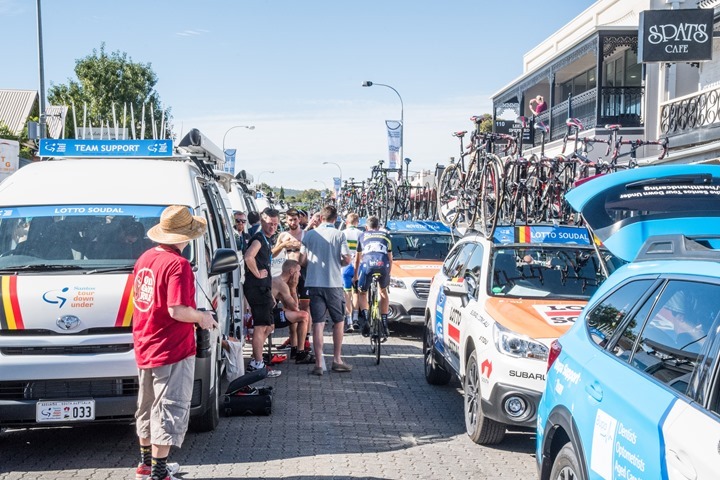
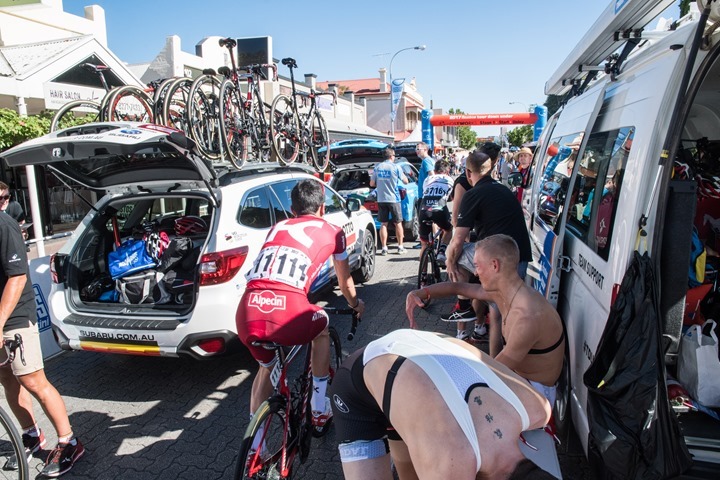
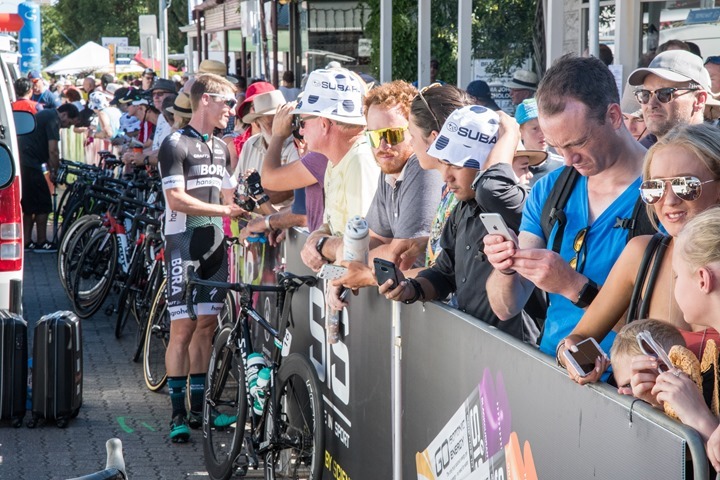
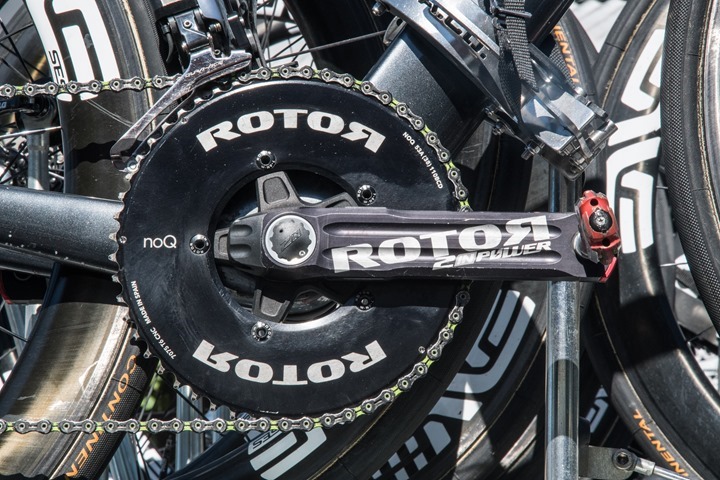
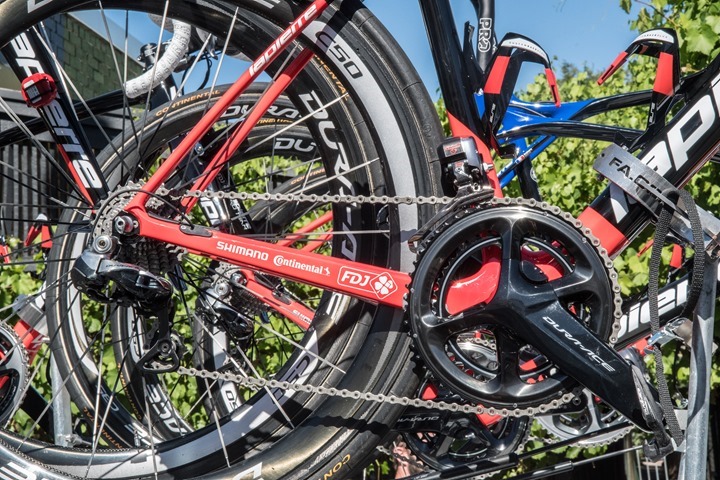
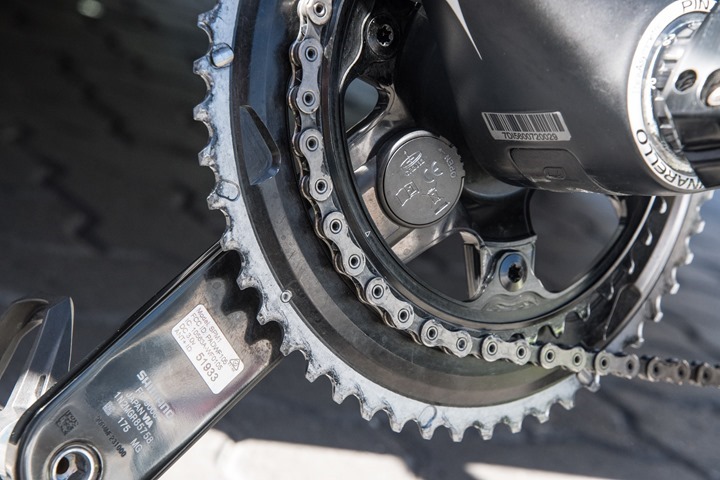
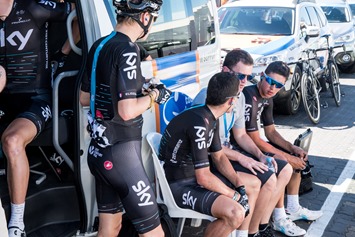
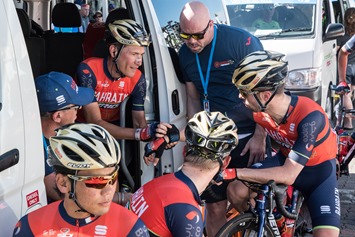
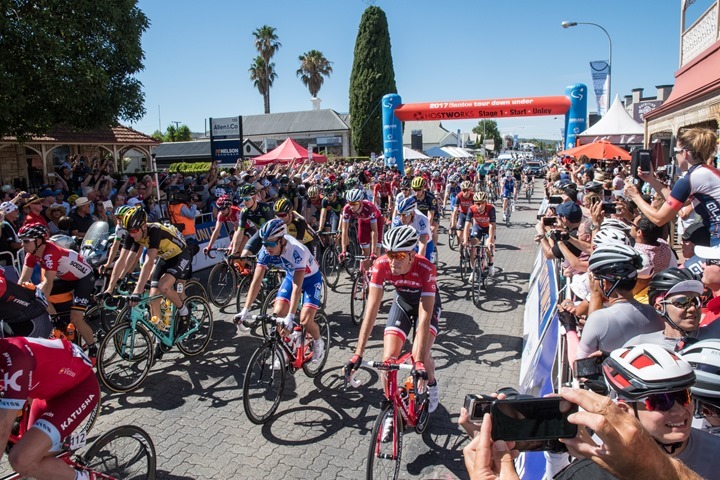
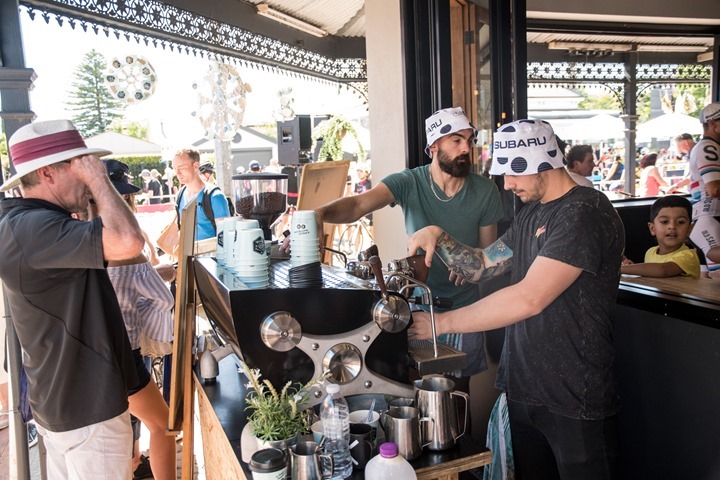
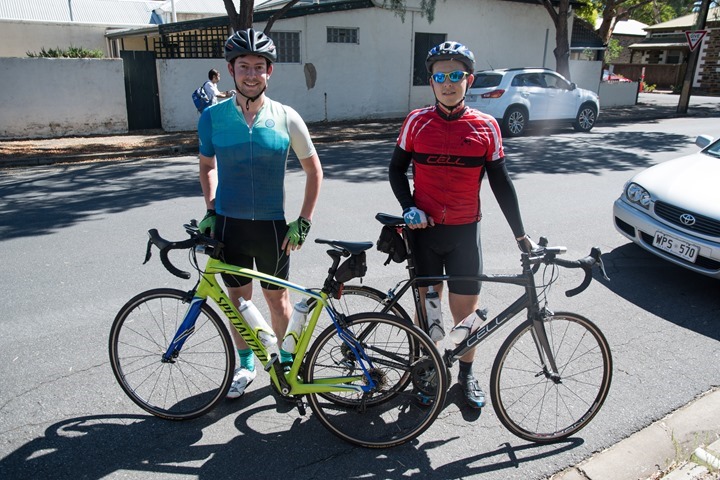
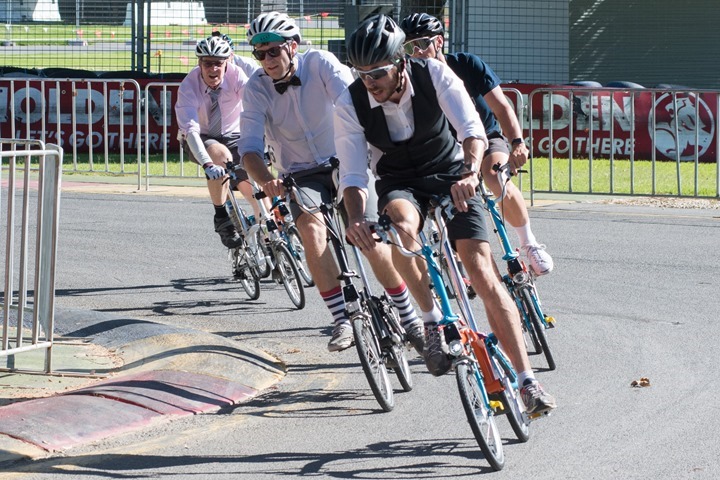
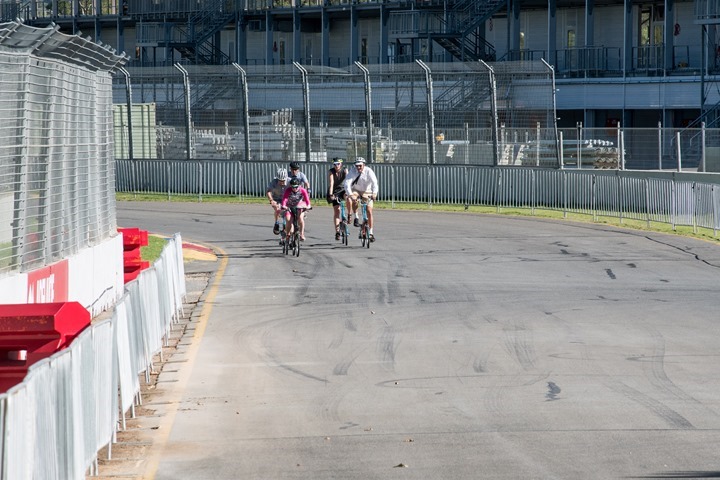
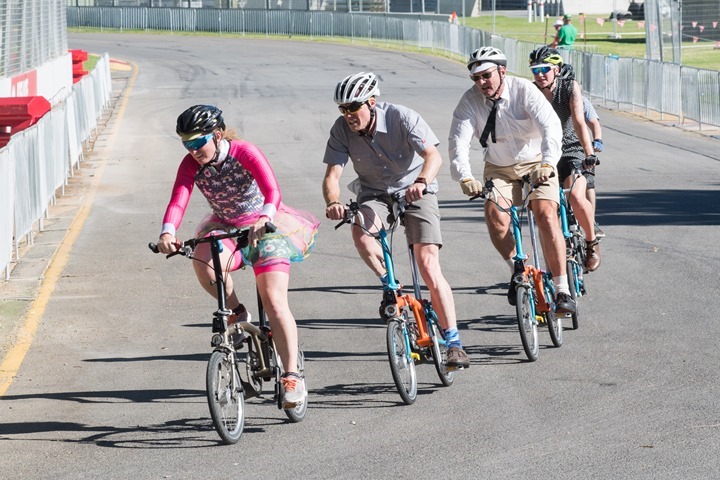
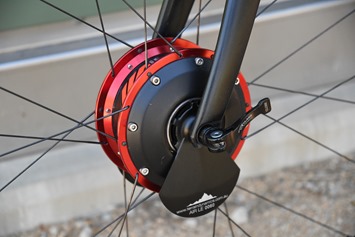
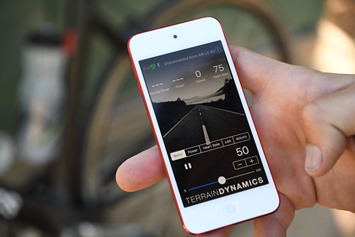
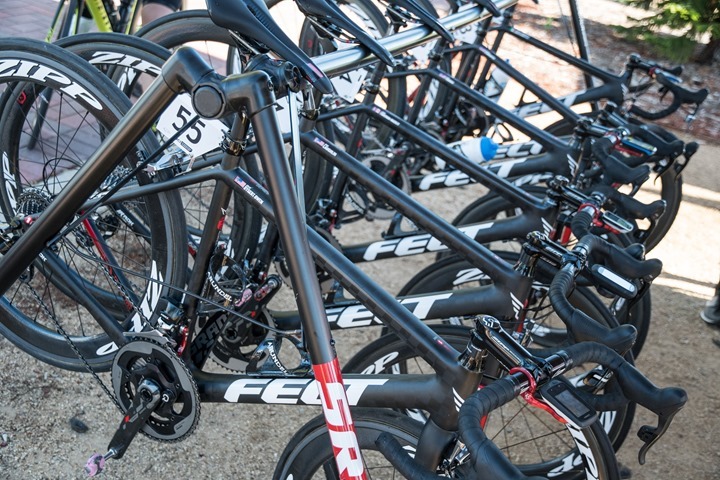
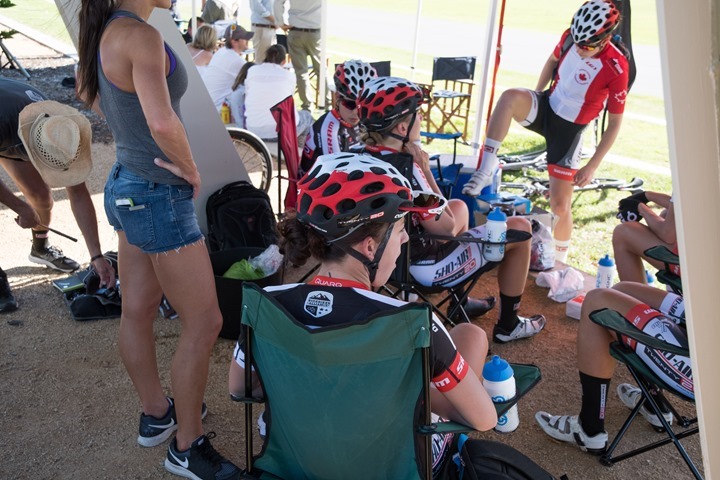
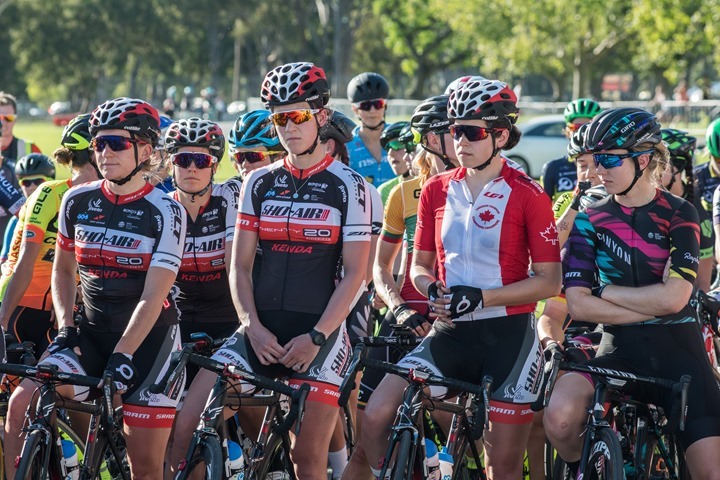
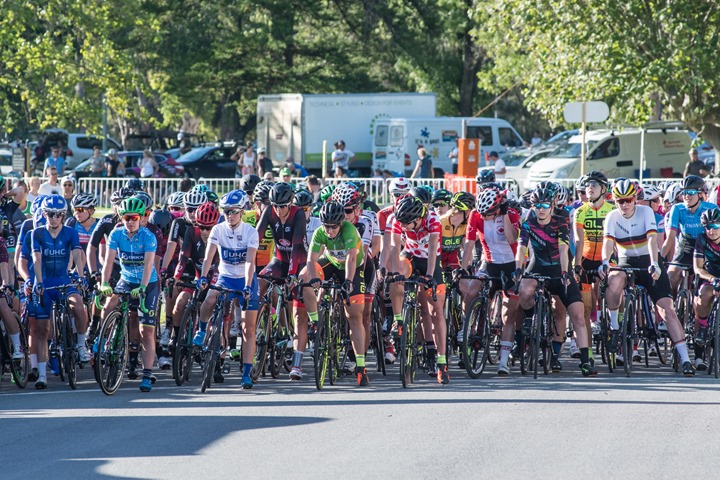
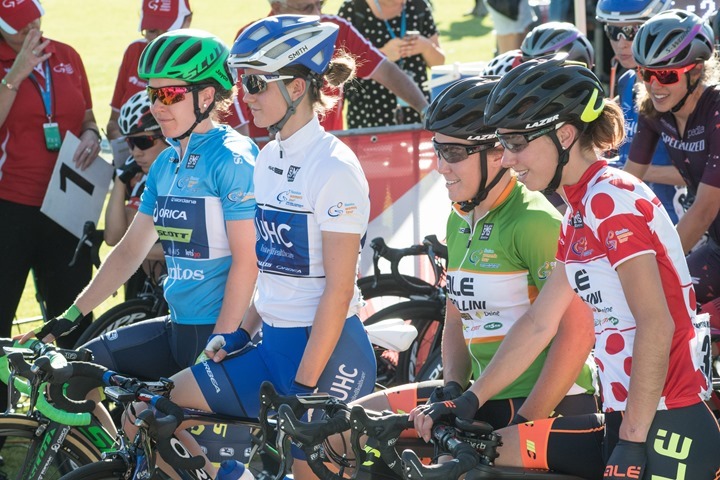
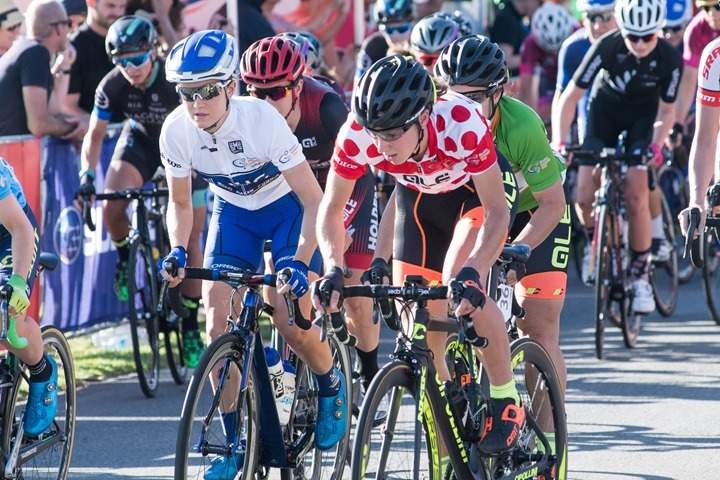
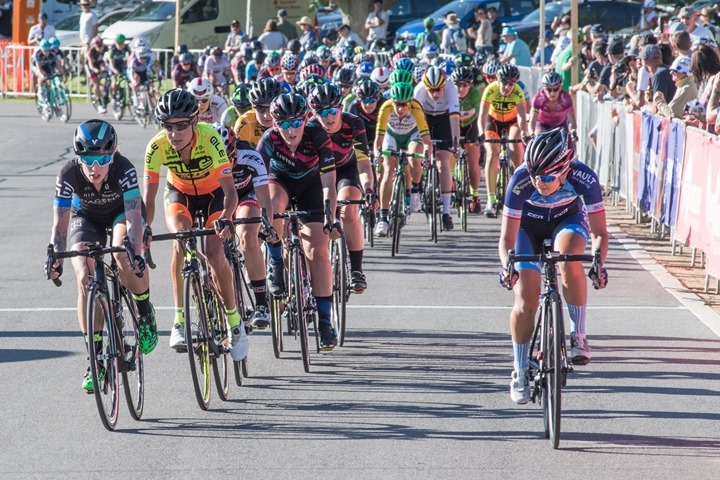
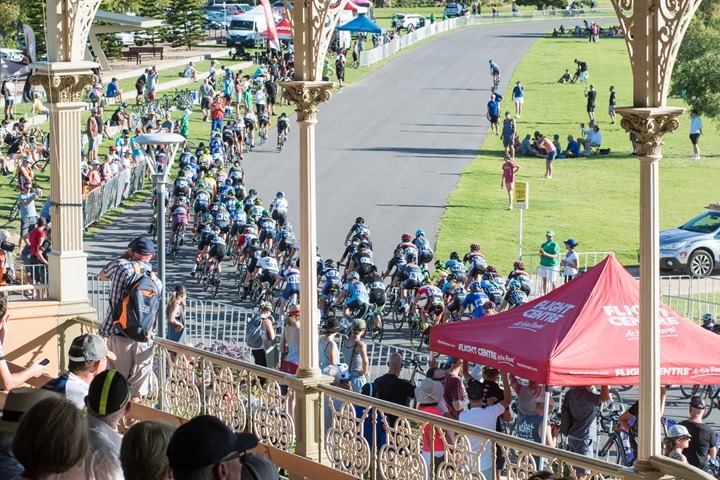
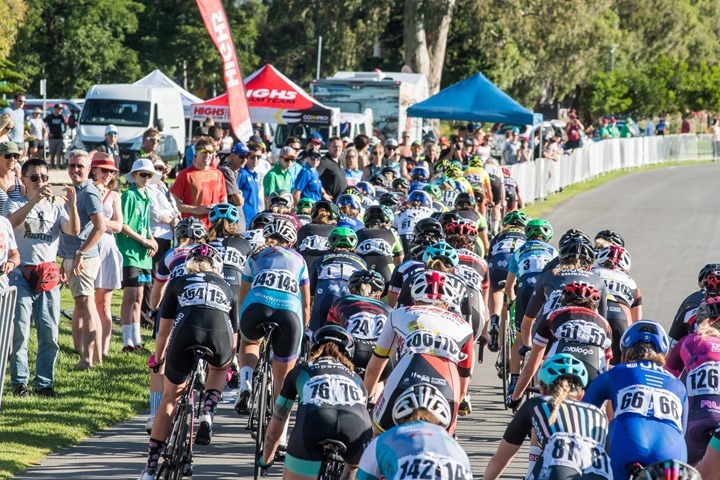
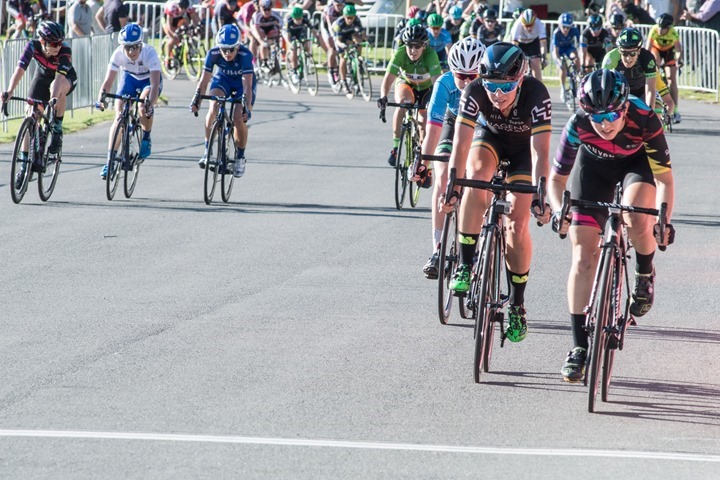
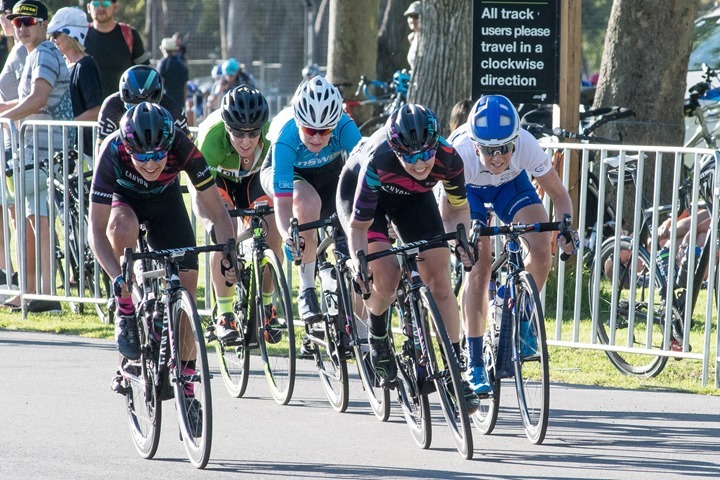
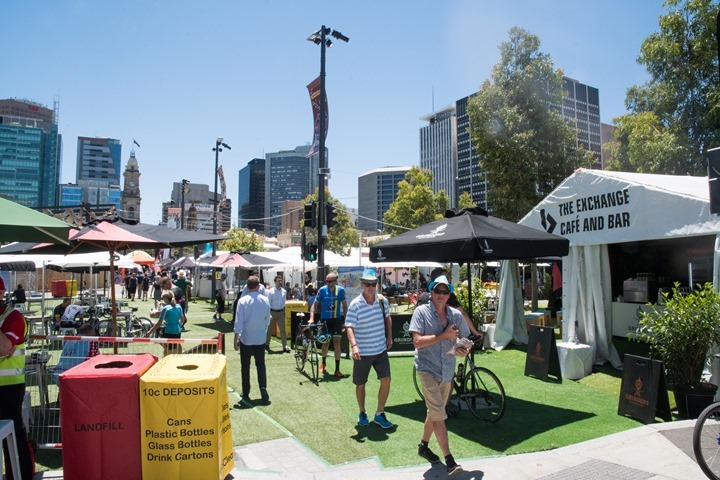
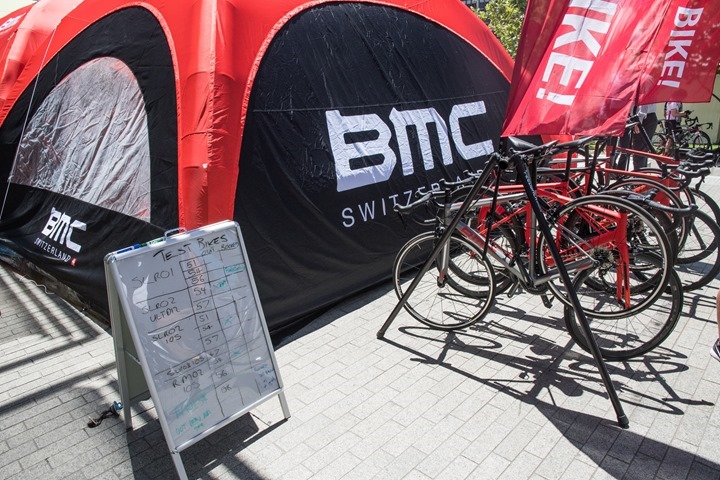
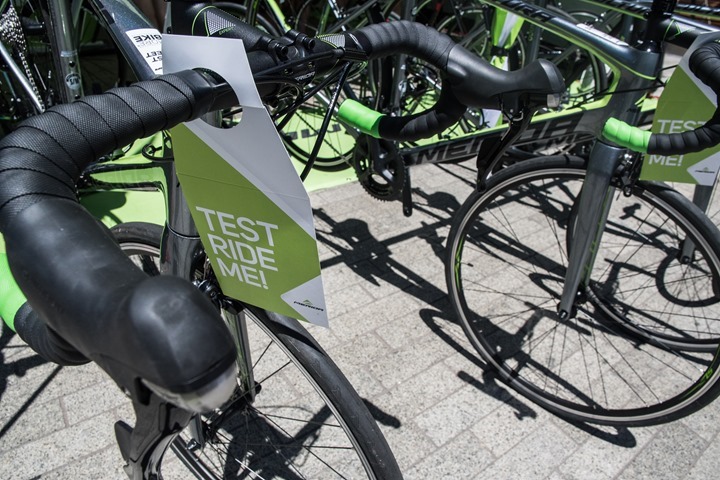
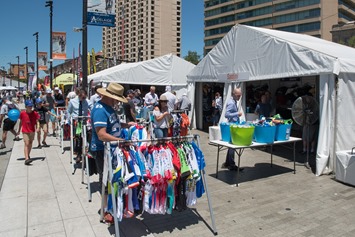
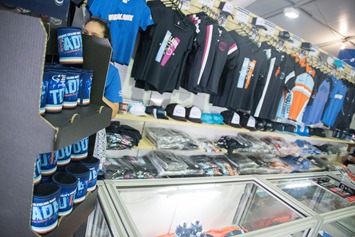
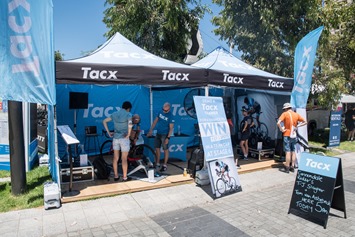
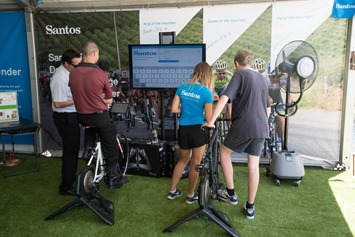
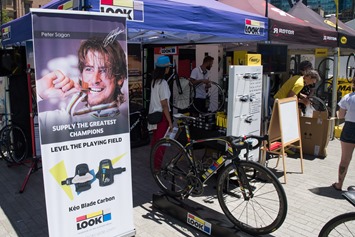
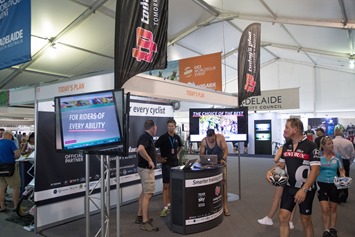
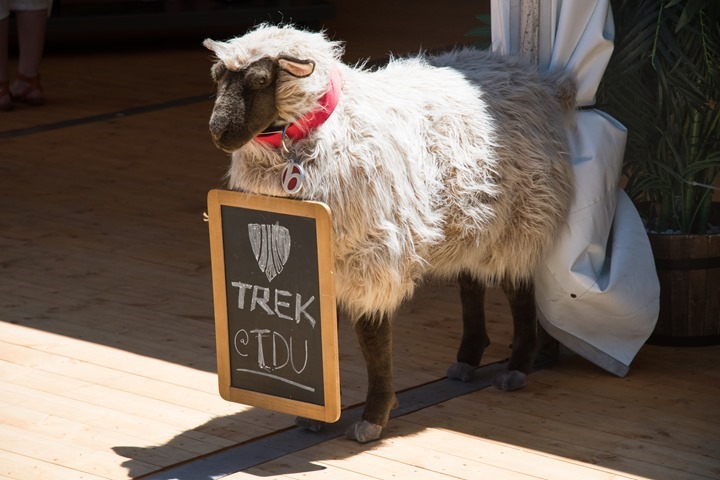
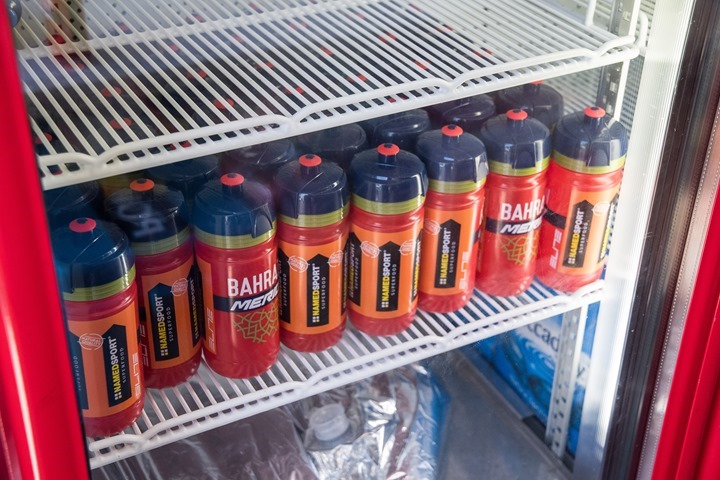
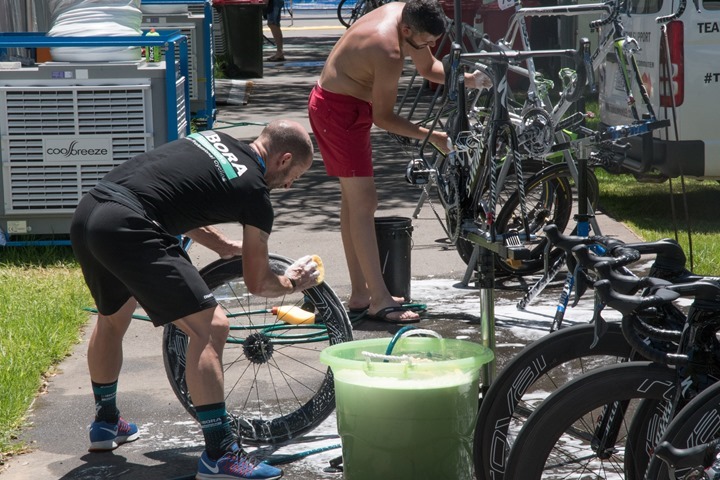





















thunder from down under?…wait
Nice post. The brompton race was probably a part of the world championship. You are supposed to wear the ‘British Man’ dress code. I have a six speed high speed brompton and it is impossible to cycle slow on those, they are a bit aggressive/fast position. It is the only folding bike that allows >40 miles a day and doesn’t break with my usage :D
So what kind of power meters do they use on the Bromptons?
In a folding bike race I’ve seen before, in addition to the rider dress code being business attire (from the waist up) the bikes were all folded and the riders had to run down the track and unfold them to start.
It wasn’t a Brompton race but most of the riders were on Bromptons as the unfold was quicker than other bikes so a time advantage right from the start.
Hi ray,
I think the accessibility refers to being able to ride back into the city with the riders after each race.
FYI ray, a baby kangaroo is called a joey
Glad you had fun
I would suggest most of the undies race participants went with singlets in an attempt to avoid sunburn. Skin cancer awareness is very high in Australia as we have one of the highest rates of skin cancer in the world.
I’d disagree with the need for a car. You can easily spectate in multiple spots by bike.
Many use the race as something in the background to a training camp anyway